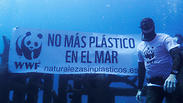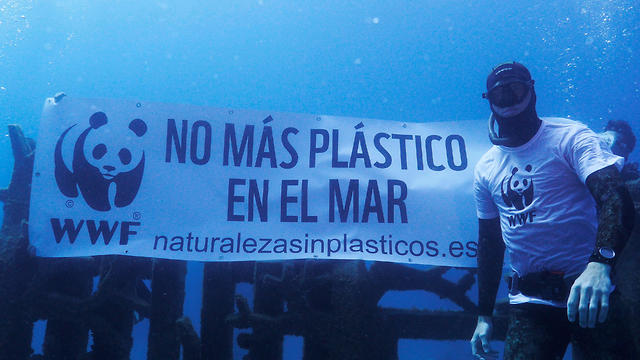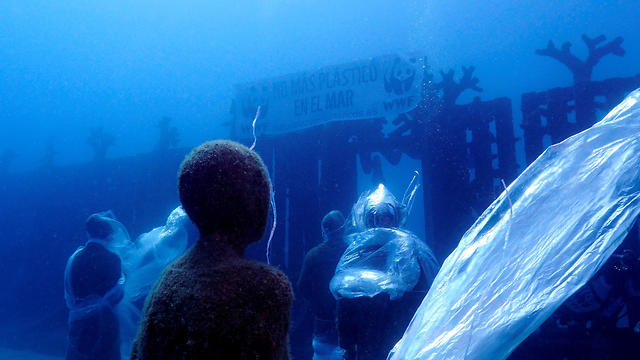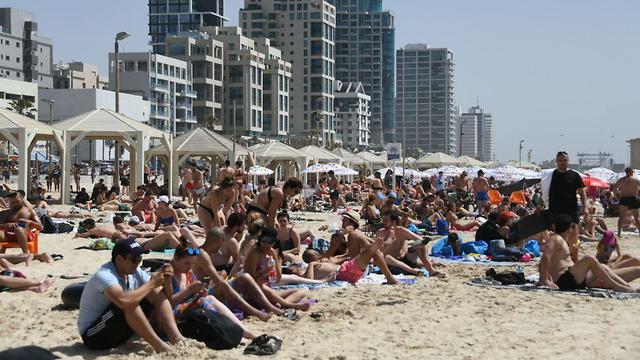
We may be eating credit card's worth of plastic each week says study
WWF International-commissioned research reveals people ingest up to five grams of plastic on a weekly basis with the largest source of plastic ingestion being drinking water
The study by Australia's University of Newcastle said the largest source of plastic ingestion was drinking water, but another major source was shellfish, which tended to be eaten whole so the plastic in their digestive system was consumed too.

The average person could be consuming 1,769 particles of plastic every week from water alone, it said.
The amount of plastic pollution varies by location, but nowhere is untouched, said the report, which was based on the conclusions of 52 other studies.

In the United States, 94.4% of tap water samples contained plastic fibres, with an average of 9.6 fibres per litre. European water was less polluted, with fibres showing up in only 72.2% of water samples, and only 3.8 fibres per litre.
In the meantime, the Tel Aviv coast has been found to be the third-most plastic polluted shoreline in the Mediterranean, according to a report on plastic waste in the region published by the World Wildlife Fund last week.
The Israeli metropolis ranked behind the beaches of Turkey’s Cilicia region and those of Barcelona. The report sampled plastic waste from a select list of shorelines and did not examine all cities along the Mediterranean.
According to the report, a one-kilometer stretch of Tel Aviv’s shorelines accumulate some 21 kilograms (46 pounds) of plastic waste per day. In total, the report found, some 570,000 tonnes of plastic were put into the sea every year, which is the equivalent of 33,800 plastic bottles every minute.











